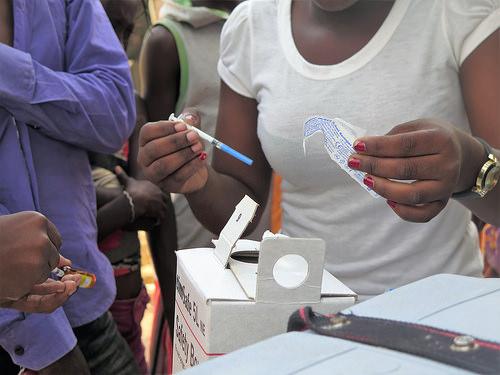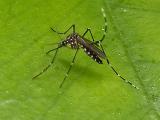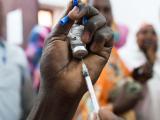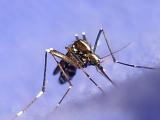Because of concerns that the current yellow fever epidemic in Angola is spreading to the Republic of Congo and the Democratic Republic of the Congo (DRC), the World Health Organization (WHO) is planning to reconvene the emergency committee on yellow fever in the coming weeks to reassess recommendations for at-risk countries.
On May 19, the WHO held an initial meeting of the emergency committee on yellow fever. At that time, the organization decided the outbreak in Angola, which began in January, did not constitute a public health emergency of international concern (PHEIC) as defined by International Health Regulations. Instead, it called the outbreak a "serious public health event that warrants intensified national action and enhanced international support."
Now, amidst reports that yellow fever is now suspected in Brazzaville, Congo, the WHO is reconsidering their initial judgment.
Committee to consider new outbreak developments
Tarik Jasarevic, WHO spokesman, told CIDRAP News in an e-mail, "The Committee indicated willingness to be reconvened if needed. Plans are underway to reconvene the committee in late August or early September. The Committee will hear reports and consider recommendations applicable to affected and at-risk countries, including Republic of Congo."
He said WHO is deploying epidemiologists at border crossings between the DRC and the Republic of Congo. Brazzaville—the Republic of Congo's capital—is just across the border from Kinshasa, one of the biggest cities in Africa.
"If there is additional information to suggest a confirmed yellow fever epidemic, the WHO and partners will support the country to quickly institute the relevant epidemic control measures," said Jasarevic. "Currently there are no confirmed cases reported in Congo."
On Aug 12, infectious disease doctor Daniel Lucey, MD, MPH, posted an open letter to the WHO asking them to reconsider yellow fever in Africa as a PHEIC. Lucey said as of Aug 3 there were 193 suspected cases of yellow fever in Brazzaville, the first reports of the mosquito-borne disease in that city.
Vaccination campaign begins
News about a potential spread to Brazzaville comes as the WHO launches a massive vaccination campaign in Kinshasa and along a high-traffic corridor between Angola and the DRC, set to begin tomorrow.
The WHO will be using fractional dosing (one-fifth the standard dose) of yellow fever vaccine to stretch the limited supply in an effort to cover 8 million of Kinshasa’s 11 million inhabitants. Currently, only 2 million people in Kinshasa are vaccinated against yellow fever.
The international stockpile of yellow fever vaccine has already twice been depleted this year. The WHO said fractional dosing will likely confer at least 1-year immunity to recipients, as opposed to lifelong immunity provided by the standard vaccine. According to its story about the campaign, the WHO said it will take at least 6 more months before a new batch of yellow fever vaccine is ready for use.
According to WHO, the vaccine campaign, "… hinged on the availability of vaccines donated by the Brazilian government and … also required the purchase and shipment of 10 million specialized 0.1 mL syringes, to ensure the right amount is used for every vaccination."
So far, 16 million people in Angola and DRC have been vaccinated against yellow fever, and the WHO said they have plans to vaccinate 14 million more before October, when the rainy mosquito season begins.
See also:
Aug 15 CIDRAP News scan
Aug 16 WHO mass vaccination campaign story
Jun 16 WHO yellow fever stockpile story






















